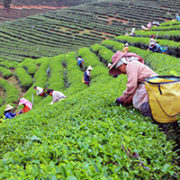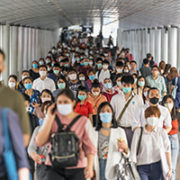Archive | Health RSS feed for this section
Finance sector development, Governance and public sector management, Health, Regional cooperation and integration
 Agriculture and natural resources, Health, Social development and protection
Agriculture and natural resources, Health, Social development and protection
 Health, Poverty, Social development and protection
Health, Poverty, Social development and protection
 Health, Poverty, Social development and protection
Health, Poverty, Social development and protection
 Governance and public sector management, Health
Governance and public sector management, Health
 Economics, Health, Industry and trade
Economics, Health, Industry and trade
 Economics, Environment, Health, Social development and protection
Economics, Environment, Health, Social development and protection
 Economics, Environment, Finance sector development, Health
Economics, Environment, Finance sector development, Health
 Economics, Health, Social development and protection
Economics, Health, Social development and protection
 Economics, Health
Economics, Health

The impacts of COVID-19 on financial stability and regional financial safety nets in ASEAN

The Association of Southeast Asian Nations (ASEAN) is making strong efforts to maintain financial stability amid the coronavirus disease (COVID-19) pandemic, mostly through national financial emergency measures for each member state. As a region, ASEAN has not yet formed a regional financial safety net to deal with a crisis like COVID-19.
Enhancing agriculture potential in developing countries during the COVID-19 crisis

Much of the displaced labor force from urban centers is moving back to rural homes due to closures from restrictions put in place to combat the coronavirus disease (COVID-19). It is important that this displaced labor force is put in a working environment and kept engaged, specifically in the agricultural sector, so that such the young and energetic in the workforce are not left out. A disgruntled labor force without financial support might turn to unwanted or illegal activities.
COVID-19 hitting migration and remittances hard in developing Asia
By Aiko Kikkawa Takenaka, James Villafuerte, Raymond Gaspar and Badri Narayanan. Posted August 25, 2020

The coronavirus disease (COVID-19) pandemic has devastated economies worldwide, slashing jobs and incomes. The Asian Development Bank (ADB) (2020a) estimates that employment in Asia and the Pacific will fall by as much as 167 million jobs in 2020 should containment measures last 6 months from when the outbreak first intensified in the respective countries. In turn, wage incomes in the region are projected to fall from $359 billion to $550 billion.
Barefoot doctor 2.0: Making it happen

Over 50 years ago, a pioneering medical system was launched in the People’s Republic of China (PRC). Known as the “barefoot doctors” scheme, the program liberalized healthcare beyond doctors and allowed some 1.5 million community health workers to practice basic medicine after 3–6 months of training. This effectively created a national network of healthcare services for the very first time, increasing rural healthcare coverage to 90%.
Rare diseases in Asia and the Pacific must be tackled too

Unlike the coronavirus disease (COVID-19), few people will have heard of the rare disease Epidermolysis Bullosa (EB). It is an inherited genetic condition that affects the skin and can be fatal during infancy or early childhood for those suffering from its most severe forms. The condition causes the skin, both outside as well as inside the body, to blister and tear easily. Since the skin is unable to withstand normal wear and tear, it gets repeatedly wounded and the cells can become cancerous.
Empowering Thai SMEs to join global value chains: Policy priorities under COVID-19

Small and medium-sized enterprises (SMEs) are significant contributors to economic activity and employment worldwide, and Thailand is no exception. In Thailand, SMEs represent the vast majority of firms and employ the bulk of the domestic workforce. According to the Office of SMEs Promotion (OSMEP 2019), in 2018, approximately 3 million companies were classed as SMEs in the country, comprising 99.8% of all companies. SMEs also accounted for 14 million jobs, or 86% of total employment.
ESG investment growth amid the COVID-19 crisis

Environmental, social, and governance (ESG) investment is critical for achieving inclusive growth in Asia and can play a critical role in reducing the income inequality caused by the coronavirus disease (COVID-19).
COVID-19 highlights the need to strengthen environmental risk management and scale-up sustainable finance and investment across Asia

Like the rest of the world, Asia has been hit hard by the COVID-19 crisis. While some countries have been able to contain the spread of the virus relatively well, the disruption of supply chains, sharp decline in global demand, and the large-scale withdrawal of capital have led to severe economic contractions across the region.
Achieving fiscal sustainability in the face of demographic change

Asia is advancing toward becoming a gray society, though some countries are in the early stages and some are more advanced. The longevity revolution is being demonstrated through longer life expectancies due to medical innovation and improvements in medical care, as well as people having healthier lifestyles. Meanwhile, a continuously decreasing trend in fertility rates is being witnessed across the region. These two factors combined create the demographic transition of population aging. This demographic transition is not new, and its socioeconomic impacts have spread widely in many economies in Asia and the Pacific.
Economic impacts of the COVID-19 pandemic and oil price collapse

The recent collapse in oil prices in the global market was caused by a combination of supply and demand issues as well as uncertainty about the future, and has resulted in a crash in financial markets. But what are the reasons behind this collapse, and what impacts will it have on oil-exporting and oil-importing economies?


Search
Subscribe / Connect to Asia Pathways
Subjects
- Agriculture and natural resources
- Blog
- Capacity development
- Climate change
- Economics
- Education
- Energy
- Environment
- Finance sector development
- Gender
- Governance and public sector management
- Health
- Industry and trade
- Information and Communications Technology
- Infrastructure
- Miscellaneous
- Population
- Poverty
- Private sector development
- Regional cooperation and integration
- Sanitation
- Social development and protection
- Transport
- Uncategorized
- Urban development
- Video Blog
- Water
Recent Posts
- Artificial intelligence: A new driver for inclusive growth and development?
- Increasing trust in cross-border e-commerce and artificial intelligence
- Enhancing access to maternal and newborn healthcare in developing Asia
- Can electric vehicles lead the way to a sustainable future?
- Mitigating climate-related sovereign risk to accelerate action on the climate emergency




Recent Comments